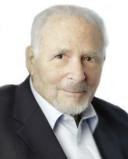Fear
Our Emotional Reactions to Terrorism
Untangling the complexity of human response to the recent terrorist attacks
Posted July 27, 2016

Most of us have no trouble recognizing what emotion we feel, unless for some reason we don’t think that we should be feeling that emotion. But the tragic events in Paris, San Bernardino and now Orlando are likely to have had a complex emotional impact, which might be confusing if not untangled. Let me try to do so.
We are likely to be afraid that this slaughter will happen again, even worse, afraid that we might be the victims the next time around. It’s not just our reluctance to acknowledge being scared, but we may also be angry that ISIS has succeeded in its goal of scaring us, by slaughtering for no reason other than to scare people like us. The fear will also be mixed with empathy for the victims and the survivors who now live with the memory of this tragic event. The empathy will generate quite a different emotion than fear – sadness.
We feel sadness, not just about the death of the victims, but also for the survivors, not just for their relatives, but for all of us who rightly empathize with the victims and their survivors. But there is more. We are all in a sense victims: horrified, in addition to the already mentioned sadness, fear and anger. Horror is a mixture of outrage and disgust; the anger is directed outward towards the perpetrators of these horrifying acts, but perhaps also directed inwards at ourselves for feeling afraid. We are entitled to feel that emotion; entitled to feel all four emotions – fear, anger, sadness, horror– but their mixture may be confusing to experience.
Although the science is not conclusive on this point, I think we can’t feel more than one emotion at a time, but we can switch from one emotion to another in a fraction of a second. Each emotion produces not only a change in the appearance of our face, the sound of our voice, the memories that are retrieved and expectations aroused, but also changes in our autonomic nervous system (ANS), which regulates various bodily functions. The changes in the ANS often last for many seconds, so when we switch from one emotion to another in seconds or fractions of second, new impulses to change the ANS are layered onto changes that have not yet expired. Our body becomes a messy jumble of unpleasant feelings. We feel upset. Not angry upset, not fearfully upset, not sadly upset, not horrified upset, but all of those feelings, all of those changes in our body mixed together, on top of each other.
We are entitled to all of those emotions. None of them is wrong to feel. A jumble is to be expected. Accepting these feelings and how their layering can be overwhelming, is normal not unusual. We have permission to feel these feelings, to feel overwhelmed, for a time to feel pushed over an edge. Hopefully, by knowing what emotions are mixed within our bodies the experience might be less confusing.
© Copyright 2016 Paul Ekman Group LLC. All rights reserved.


